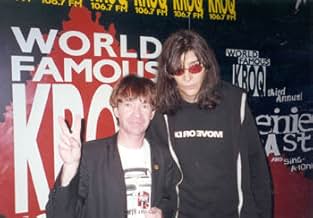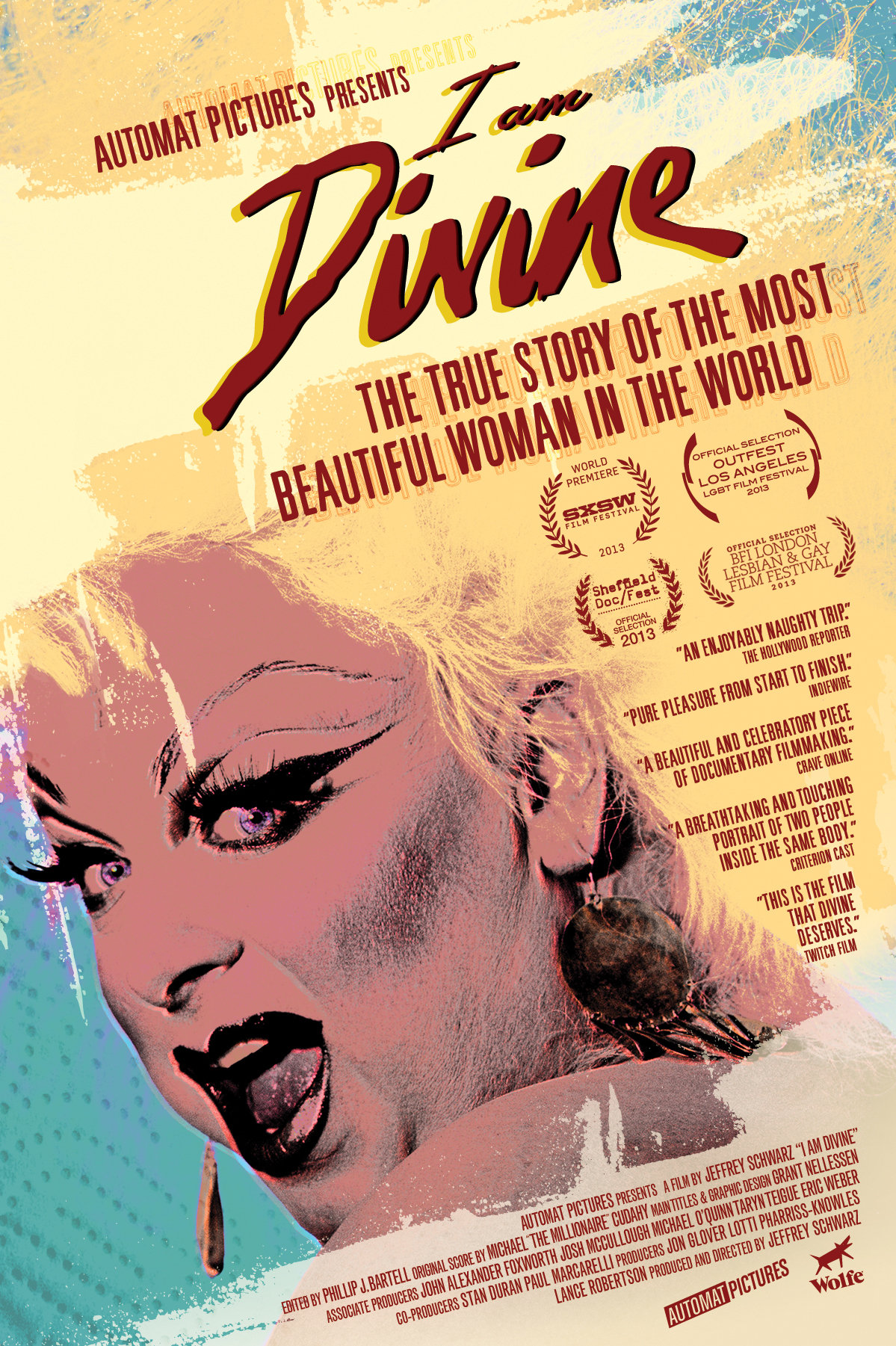IMDb RATING
7.0/10
1.7K
YOUR RATING
A look at the history of fame in the world through the eyes of pop star impresario, Rodney Bingenheimer.A look at the history of fame in the world through the eyes of pop star impresario, Rodney Bingenheimer.A look at the history of fame in the world through the eyes of pop star impresario, Rodney Bingenheimer.
- Awards
- 1 win & 1 nomination
Joey Ramone
- Self
- (archive footage)
Chris P. Carter
- Self - Dramarama
- (as Chris Carter)
Gwen Stefani
- Self
- (as No Doubt)
Debbie Harry
- Self
- (as Deborah Harry)
- Director
- Writer
- All cast & crew
- Production, box office & more at IMDbPro
Storyline
Did you know
- TriviaAfter making its world premiere as the Centerpiece Film of the 2003 IFP/Los Angeles Film Festival the movie sold to First Look Media and Lakeshore Entertainment for $1.3 million, making it the second highest selling documentary of all time, next to Michael Moore's Bowling for Columbine (2002).
- Quotes
Courtney Love: [asked how she first met Rodney] I stalked him.
- Crazy creditsAfter the credits, we see the conclusion of the concert by the band X that starts the movie. Then we see Rodney talking with one of X's members, who tells him that he always finds Rodney's radio show, no matter when it airs.
- ConnectionsFeatured in The 2004 IFP/West Independent Spirit Awards (2004)
- SoundtracksLos Angeles
Written by Exene Cervenka (as Exene) and John Doe
Performed by X
Used by permission of Plaything Music o/b/o itself adn Grosso Modo (ASCAP)/John Nommenson
Featured review
If "Mayor of the Sunset Strip" were not a documentary, no one would ever believe the story it tells. The film chronicles the life of Rodney Bingenheimer, the L.A. DJ who helped to launch the careers of many of the most influential bands in rock music history. However, if you're expecting Rodney to be a dashing, high-powered music exec with loads of cash and garages full of fancy sport cars, think again. He is, in fact, a painfully shy and unassuming man who seems totally out of place in the celebrity swirl of which he became so integral a part beginning in the 1960's. This is what makes his story and the film so fascinating, for who could have imagined that this gnomish young lad from Mountain View, California - essentially abandoned by both his mother and father and rejected by his peers - would somehow manage to make himself the center of attention for some of the greatest rock celebrities of the 1960's and '70's. Everybody who was anybody knew and adored Rodney, and, after he landed a gig as DJ at L.A.'s KROQ in the 1970's, he gave many struggling alternative artists their first real toehold on the radio, playing their records at a time when no other disc jockeys would touch them. The bands who practically owe their careers to Rodney Bingenheimer include Blondie, the Ramones, the Sex Pistols, the Runaways, the Go-Go's, No Doubt, Coldplay, and many many others.
As a documentary, the film, written and directed by George Hickenlooper, takes a fairly conventional approach, combining images from Rodney's life with interviews by celebrities, relatives and friends commenting on him both as a person and as a phenomenon. The film provides a virtual who's who of some of the biggest names in the music business stepping up to the camera to have their say, most of it highly complimentary to the subject. Indeed, almost to a person, the interviewees talk about what a sweet, lovable guy Rodney is and how hobnobbing with so many celebrities has not diminished his innate humility and decency as a person. There is one moment in the film when Rodney allows his anger to get the better of him, but, most of the time, he comes across as a goodhearted, almost passive person who is surprisingly inarticulate and - one senses - not all that comfortable being the subject of a documentary. The film achieves a poignancy and sadness in its latter scenes when we discover that, despite all this notoriety among the glitterati in Hollywood, Rodney lives a rather isolated existence, never having found that one true love with whom he could settle down and make a life. In fact, the movie makes us question whether fame - or even proximity to the famous - can ever really lead to a happy, successful life. It's a lament we've heard many times before and will hear many times again.
"Mayor of the Sunset Strip" provides us with a kaleidoscopic view of the L.A. music scene from the mid 1960's to the present. Rodney's life becomes the forum for reliving all those exciting moments in which this parade of beautiful and talented people came to define the culture and eras of which they were a part. The film has an almost "Zelig" quality to it, as Rodney is photographed standing next to virtually every important rock artist to come down the pike in the last four decades.
I must admit that, even after watching "Mayor of the Sunset Strip," I still don't claim to understand how Rodney achieved everything that he did, and maybe no film could ever really capture that magic alignment of elements that made it possible for a shy, insecure young boy from a broken family - yet a boy with dreams and an abiding love of rock 'n roll - to play such a crucial part in music history. I guess you had to actually be there to really understand it.
My own experience with Rodney Bingenheimer is an extremely modest one. I once stood behind him while waiting to board a flight from San Jose to Burbank. Few people in the crowd seemed to know who he was, but an attractive young girl, obviously interested in pursuing a career in music, approached him and politely engaged him in conversation. Rodney, despite the fact that he could have simply ignored her advances and begged for privacy, instead turned his full attention to what it was she was saying, smiled demurely at her compliments, and offered her an opportunity to perform for him when they got back to L.A. It's that Rodney Bingenheimer who comes through in the film.
As a documentary, the film, written and directed by George Hickenlooper, takes a fairly conventional approach, combining images from Rodney's life with interviews by celebrities, relatives and friends commenting on him both as a person and as a phenomenon. The film provides a virtual who's who of some of the biggest names in the music business stepping up to the camera to have their say, most of it highly complimentary to the subject. Indeed, almost to a person, the interviewees talk about what a sweet, lovable guy Rodney is and how hobnobbing with so many celebrities has not diminished his innate humility and decency as a person. There is one moment in the film when Rodney allows his anger to get the better of him, but, most of the time, he comes across as a goodhearted, almost passive person who is surprisingly inarticulate and - one senses - not all that comfortable being the subject of a documentary. The film achieves a poignancy and sadness in its latter scenes when we discover that, despite all this notoriety among the glitterati in Hollywood, Rodney lives a rather isolated existence, never having found that one true love with whom he could settle down and make a life. In fact, the movie makes us question whether fame - or even proximity to the famous - can ever really lead to a happy, successful life. It's a lament we've heard many times before and will hear many times again.
"Mayor of the Sunset Strip" provides us with a kaleidoscopic view of the L.A. music scene from the mid 1960's to the present. Rodney's life becomes the forum for reliving all those exciting moments in which this parade of beautiful and talented people came to define the culture and eras of which they were a part. The film has an almost "Zelig" quality to it, as Rodney is photographed standing next to virtually every important rock artist to come down the pike in the last four decades.
I must admit that, even after watching "Mayor of the Sunset Strip," I still don't claim to understand how Rodney achieved everything that he did, and maybe no film could ever really capture that magic alignment of elements that made it possible for a shy, insecure young boy from a broken family - yet a boy with dreams and an abiding love of rock 'n roll - to play such a crucial part in music history. I guess you had to actually be there to really understand it.
My own experience with Rodney Bingenheimer is an extremely modest one. I once stood behind him while waiting to board a flight from San Jose to Burbank. Few people in the crowd seemed to know who he was, but an attractive young girl, obviously interested in pursuing a career in music, approached him and politely engaged him in conversation. Rodney, despite the fact that he could have simply ignored her advances and begged for privacy, instead turned his full attention to what it was she was saying, smiled demurely at her compliments, and offered her an opportunity to perform for him when they got back to L.A. It's that Rodney Bingenheimer who comes through in the film.
- How long is Mayor of the Sunset Strip?Powered by Alexa
Details
- Release date
- Country of origin
- Language
- Also known as
- Gradonacelnik Sanset Stripa
- Filming locations
- Southern California, California, USA(Location)
- Production companies
- See more company credits at IMDbPro
Box office
- Gross US & Canada
- $257,315
- Opening weekend US & Canada
- $21,722
- Mar 28, 2004
- Gross worldwide
- $257,315
- Runtime1 hour 34 minutes
- Color
- Sound mix
- Aspect ratio
- 1.85 : 1
Contribute to this page
Suggest an edit or add missing content

Top Gap
By what name was Mayor of the Sunset Strip (2003) officially released in Canada in English?
Answer
































